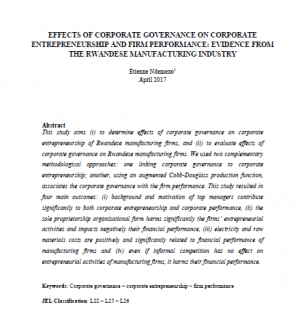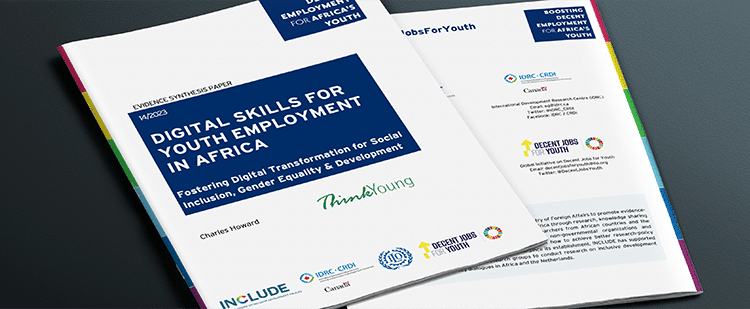
Evidence from Rwandese manufacturing industry
This paper, an output of the African Policy Dialogues in Rwanda, looks at the effects of corporate governance on corporate entrepreneurship and firm performance in Rwandese manufacturing industry. The objectives of this paper are to determine effects of corporate governance on corporate entrepreneurship of Rwandese manufacturing firms, and evaluate effects of corporate governance on Rwandese manufacturing firms.
Key messages
- The background of top managers contributes significantly to both corporate entrepreneurship and corporate performance.
- The sole proprietorship organizational form harms entrepreneurial activities and is negatively related to financial performance of manufacturing firms because of considerable financial constraints.
- Electricity and raw materials expenses contribute significantly and positively to financial performance of Rwandese manufacturing firms.
- Informal competition has no effect on entrepreneurial activities of manufacturing firms, however it harms their financial performance because firms are more interested in the short term business development rather than in the long term strategic innovative actions.
Recommendations
- In order to boost internal entrepreneurial activities of manufacturing firms, focus more on the background and motivation of top managers.
- Manufacturing firms require access finance as a key element for their internal entrepreneurship development.
- Avail electricity and raw materials in order to improve manufacturing firms’ financial performance and corporate entrepreneurship.




